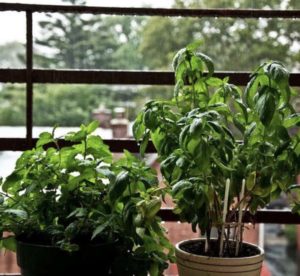What is a year, when just a moment can be as profound as Yi Chehyǒn’s (1287-1367) picturesque sunset:
The twilight sun is about to sink among distant peaks;
The homing tide gurgles as it climbs the gelid shore.
Fishermen disappear among the flowering reeds;
smoke from cooking fires is even bluer in the fading light.
(The Book of Korean Poetry. Trans. Kevin O’Rourke. Iowa City: Iowa Press, 2006, p.82)
As I reflect on the passing year, I find my heart is full of gratitude and I am happier in a quieter way. Even though it was difficult to comprehend the self I had become this year because I was constantly changing and couldn’t settle long enough to decipher who/what I had become, it was an enriching experience which I hope to understand better in the coming year.
My hopes for 2018 had been to practice love. But it is December now and I am not sure I know any more about love than I did earlier in the year. All the same, conscious efforts have taught me more patience and I have been able to walk away from situations where my ego would have rather I roared and pounced. I am able to be more forgiving of myself and others now because I encounter others with the understanding that even if I cannot see another’s wounds and scars, to live is to experience multiple injuries. Injuries that inform our behaviors. And yet, I find that I have become more sensitive and in constant need of prolong solitude to unentangle myself. In this way, I am more convinced that Rilke is right: it is a Herculean task to love one’s fellow being.
I had also hoped to arrive in December with some conviction that I love God, but I do not know if I have accomplished this. All the same, I am still convinced of God’s love for us and this year would have been more challenging if I hadn’t been inspired to make Psalm 23 my mantra: in moments of distress and frustration it brought me to a state of calm. But there was a voice which enriched my analysis of love for the divine Being, it’s Amiel’s Journal by Henri-Fredédéric Amiel (1821-1881). In April 7, 1851, Amiel wrote:
The cardinal question is that of sin. The question of immanence or of dualism is secondary. The trinity, the life to come, paradise and hell, may cease to be dogmas, and spiritual realities, the form and the letter may vanish away, the question of humanity remains: What is it which saves? How can man be led to be truly man? Is the ultimate root of his being responsibility, yes or no? And is doing or knowing the right, acting or thinking, his ultimate end? If science does not produce love it is insufficient. Now all that science gives is the amor intellectualis of Spinoza, light without warmth, a resignation which is contemplative and grandiose, but inhuman, because it is scarcely transmissible and remains a privilege, one of the rarest of all. Moral love places the center of the individual in the center of being. It has at least salvation in principle, the germ of eternal life. To love is virtually to know; to know is not virtually to love; there you have the relation of these two modes of man. The redemption wrought by science or by intellectual love is then inferior to the redemption wrought by will or by moral love. The first may free a man from himself, it may enfranchise him from egotism. The second drives the ego out of itself, makes it active and fruitful. The one is critical, purifying, negative; the other is vivifying, fertilizing, positive. Science, however spiritual and substantial it may be in itself, is still formal relatively to love. Moral force is then the vital point. And this force is only produced by moral force. Like alone acts upon like. Therefore do not amend by reasoning, but by example; approach feeling by feeling; do not hope to excite love except by love. Be what you wish others to become. Let yourself and not your words preach for you. (The Project Gutenberg EBook of Amiel’s Journal, by Henri-Frédéric Amiel. Trans. Mrs. Humphrey Ward. 2016)
For 2019, I hope for the heart and mind (and courage!) to seek, learn and practice love; I also hope for the same things Agur requested in Proverbs 30:7-9. Above all, I hope for your happiness and peace of mind, for selfish reasons: I believe it would be an awesome world if we were happy and knew to practice gratitude, peace and love within our hearts and minds. And on that note, here are some words worthy of reflection and perhaps helpful in conceptualizing a new year resolution:
The beautiful is the good which makes itself loved; the good is the beautiful which heals and vivifies. But the good from which the beautiful is lost from sight hardens into principles and laws––it becomes pure duty; the beautiful which is detached from the good and loses it from sight becomes softened to pure enjoyment––stripped of obligation and responsibility. The hardening of the good into a moral code and the softening of the beautiful to pure pleasure is the result of the separation of the good and the beautiful––be it morally, in religion, or in art. It is thus that a legalistic moralism and a pure aestheticism of little depth has come into existence. (Anonymous. Meditations on the Tarot: A Journey into Christian Hermeticism. Trans. Robert Powell. New York: Penguin, 2002: 628-9)
And that is it for this year. Super thanks for making time to read my ramblings. Here is some Christmas Spirit I have prepared just for you. ^_^ <3
Merry Merry Christmas and may your new year be good and beautiful and wonderfully healthy!
Jane A. Odartey



